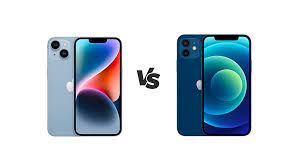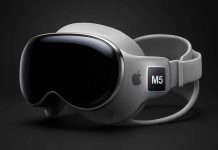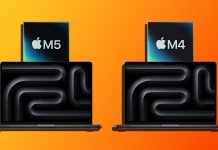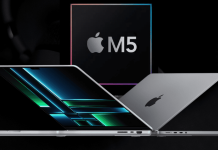The Ultimate Showdown: iPhone 12 vs iPhone 14
When it comes to smartphones, Apple’s iPhone series has always been a popular choice among consumers. With each new release, Apple introduces innovative features and advancements that captivate the market. In this article, we will compare two highly anticipated iPhone models: the iPhone 12 and the rumored iPhone 14. By examining their key features, designs, and specifications, we aim to provide a comprehensive comparison to help you make an informed decision.
iPhone 12

The iPhone 12, released in 2020, brought significant upgrades to Apple’s flagship smartphone. It boasts a sleek design with a Ceramic Shield front cover and aerospace-grade aluminum or stainless steel frame. The iPhone 12 features a Super Retina XDR display, delivering stunning visuals with its OLED technology and HDR support.
Equipped with Apple’s powerful A14 Bionic chip, the iPhone 12 offers exceptional performance and efficiency. It handles multitasking effortlessly and provides a smooth user experience. The device also excels in photography with its dual-camera system, including a 12-megapixel wide lens and a 12-megapixel ultra-wide lens. Night mode and Deep Fusion technology enhance low-light photography, while Dolby Vision HDR allows for stunning video recording.
Additionally, the iPhone 12 supports 5G connectivity, ensuring faster download and streaming speeds. It also features MagSafe, enabling easy attachment of accessories like cases and chargers.
iPhone 14
The iPhone 14, although not officially released yet, is already generating excitement among Apple enthusiasts. Rumors suggest that the iPhone 14 will introduce significant advancements over its predecessor. While details are scarce, it is expected to showcase a redesigned form factor, potentially featuring a smaller notch or even a completely notch-less display.
One of the most anticipated improvements in the iPhone 14 is the potential adoption of a 120Hz ProMotion display, providing smoother scrolling and enhanced visuals. It is also rumored to feature an upgraded A15 or A16 Bionic chip, delivering even better performance and energy efficiency.
As for the camera capabilities, the iPhone 14 is expected to offer further enhancements, potentially introducing new camera sensors and improved computational photography features. It may also bring advancements in video recording capabilities and augmented reality experiences.
Design and Display
When it comes to design and display, both the iPhone 12 and iPhone 14 are expected to showcase Apple’s commitment to sleek aesthetics and stunning visuals.
The iPhone 12 features a flat-edged design reminiscent of the iPhone 4, which received positive feedback from users. It is available in four different models: iPhone 12 Mini, iPhone 12, iPhone 12 Pro, and iPhone 12 Pro Max. These models vary in size, with the Mini being the smallest and the Pro Max offering the largest display.
The iPhone 12’s Super Retina XDR display offers excellent color accuracy, deep blacks, and high brightness levels. It supports HDR content and True Tone technology, which adjusts the display’s color temperature based on ambient lighting conditions. The Ceramic Shield front cover provides improved durability and drop resistance.
As for the iPhone 14, while specific design details are still speculative, it is expected to bring further refinements to Apple’s design language. The potential reduction in the size of the notch or its complete removal would provide a more immersive display experience. There are also rumors of Apple exploring the possibility of an under-display fingerprint sensor, eliminating the need for Face ID.
Additionally, the iPhone 14 might introduce a ProMotion display with a 120Hz refresh rate, delivering smoother animations and more responsive touch interactions. This feature, already present in other Apple devices like the iPad Pro, would greatly enhance the overall user experience.
Performance and Processing Power
Both the iPhone 12 and iPhone 14 are expected to offer exceptional performance, thanks to their powerful processors and optimized software.
The iPhone 12 is equipped with Apple’s A14 Bionic chip, built on a 5-nanometer process. This chip delivers outstanding speed and efficiency, enabling smooth multitasking, fast app launches, and impressive gaming performance. Combined with the iOS 14 operating system, the iPhone 12 provides a seamless and responsive user experience.
As for the iPhone 14, it is rumored to feature an even more advanced A15 or A16 Bionic chip, offering improved processing power and energy efficiency. This would result in faster app loading times, smoother graphics, and better overall performance. Whether it’s running resource-intensive applications or handling demanding tasks, the iPhone 14 is expected to excel in delivering a smooth and lag-free experience.
Furthermore, both models are likely to offer ample storage options, allowing users to choose the capacity that suits their needs. The iPhone 12 offers storage options ranging from 64GB to 512GB, and it is anticipated that the iPhone 14 will follow a similar range, if not expanded, to accommodate increasing storage demands.
Camera Capabilities
The camera systems of the iPhone 12 and iPhone 14 are crucial aspects to consider for photography enthusiasts and content creators.
The iPhone 12 features a dual-camera setup, including a 12-megapixel wide lens and a 12-megapixel ultra-wide lens. This combination allows users to capture stunning photos with excellent detail and color accuracy. The Night mode feature enables impressive low-light photography, while Deep Fusion technology enhances image quality by combining multiple exposures.
Video recording capabilities on the iPhone 12 are equally impressive, supporting Dolby Vision HDR and 4K video recording at up to 60 frames per second. The device also offers advanced video editing features, allowing users to create professional-looking content directly on their iPhones.
While details about the camera capabilities of the iPhone 14 are limited, rumors suggest that Apple will continue to prioritize camera improvements. It is speculated that the iPhone 14 may introduce upgraded sensors, enhanced computational photography features, and advancements in video recording capabilities. These upgrades could potentially elevate the iPhone 14’s photography and videography capabilities to new heights.
Battery Life and Charging
Battery life is a crucial factor for smartphone users, and both the iPhone 12 and iPhone 14 are expected to offer reliable performance and efficient power management.
The iPhone 12 is equipped with a built-in rechargeable lithium-ion battery that provides all-day usage under normal conditions. The exact battery capacity varies between the different models, with the iPhone 12 Mini offering the smallest battery and the iPhone 12 Pro Max featuring the largest. The iPhone 12 supports fast charging, allowing you to charge up to 50% in approximately 30 minutes with a compatible 20W power adapter.
Wireless charging is also supported by the iPhone 12, thanks to its MagSafe technology. MagSafe allows for easy attachment of compatible wireless charging accessories, ensuring convenient and efficient charging without the need for cables.
As for the iPhone 14, specific details about its battery capacity and charging capabilities are not yet available. However, it is expected that Apple will continue to prioritize battery life improvements. The iPhone 14 may feature a larger battery capacity or more efficient power management, resulting in extended usage time. Additionally, the iPhone 14 will likely continue to support fast charging and wireless charging, potentially with advancements in charging speeds.
Software and Operating System
Both the iPhone 12 and iPhone 14 run on Apple’s iOS operating system, which provides a seamless and secure user experience.
The iPhone 12 was launched with iOS 14, which introduced several new features and enhancements. iOS 14 offers improved widgets, an App Library for better app organization, and a Picture-in-Picture mode for multitasking. It also focuses on privacy with features like approximate location sharing and enhanced app permissions.
As for the iPhone 14, it is expected to launch with a newer version of iOS, potentially iOS 15 or a higher iteration. While specific details about the software updates are not yet available, Apple typically introduces new features and improvements with each iOS update. Users can anticipate enhanced functionality, refined user interface, and additional privacy and security measures.
It’s worth noting that older iPhone models may not receive the latest iOS updates, so users who prioritize staying up-to-date with the latest features and security patches may consider upgrading to the iPhone 14.
Pricing and Availability
Pricing and availability are important considerations for potential buyers when comparing the iPhone 12 and iPhone 14.
The iPhone 12 is available in various storage configurations and models, with prices varying accordingly. The starting price for the iPhone 12 Mini is generally lower compared to the standard iPhone 12, iPhone 12 Pro, and iPhone 12 Pro Max. Pricing may also vary depending on carrier agreements, promotions, and trade-in programs.
As for the iPhone 14, since it has not been officially released, specific pricing details are not yet available. However, it is expected that the iPhone 14 will be priced competitively, similar to previous iPhone models. Apple typically offers different storage options at different price points, allowing users to choose the capacity that suits their needs and budget.
In terms of availability, the iPhone 12 is widely available in various regions and countries through authorized Apple retailers, carrier stores, and online platforms. The iPhone 14 is expected to follow a similar distribution pattern, becoming available in multiple markets shortly after its official release.
Apple often offers special deals, trade-in programs, or financing options, so it’s worth keeping an eye out for any promotions or discounts that may be available for the iPhone
FAQs
Q: Should I buy the iPhone 12 or wait for the iPhone 14?
A: The decision between the iPhone 12 and iPhone 14 depends on your specific needs and priorities. If you need a new phone immediately and the features and capabilities of the iPhone 12 meet your requirements, it may be a good choice. However, if you can wait and are interested in potential advancements and improvements that the iPhone 14 might bring, it might be worth considering waiting for its release.
Q: How much does the iPhone 12 cost?
A: The price of the iPhone 12 varies depending on the specific model and storage capacity you choose. The iPhone 12 Mini starts at around $699, while the standard iPhone 12 starts at around $799. The iPhone 12 Pro and iPhone 12 Pro Max have higher starting prices, typically around $999 and $1,099, respectively.
Q: Will the iPhone 14 have a better camera than the iPhone 12?
A: While specific details about the iPhone 14’s camera capabilities are not yet available, it is expected that Apple will continue to improve the camera system in the iPhone 14. With each new iPhone release, Apple tends to introduce advancements in camera technology, such as improved sensors, computational photography features, and video recording capabilities. Therefore, it is likely that the iPhone 14 will offer enhancements over the iPhone 12 in terms of camera performance.
Q: How long does the battery last on the iPhone 12?
A: The exact battery life of the iPhone 12 varies depending on usage patterns and settings. Under normal conditions, the iPhone 12 can provide all-day battery life, allowing you to use the device throughout the day without needing to recharge. However, heavy usage, such as gaming or video streaming, may drain the battery faster. It’s worth noting that the battery life may vary between different iPhone 12 models, with the iPhone 12 Pro Max typically offering the longest battery life.
Q: Will the iPhone 14 support 5G connectivity?
A: While specific details about the iPhone 14’s features are not yet confirmed, it is highly likely that the iPhone 14 will support 5G connectivity. The iPhone 12 was the first iPhone model to introduce 5G capabilities, and it is expected that Apple will continue to include this feature in future iPhone releases, including the iPhone 14.
Conclusion
In the ultimate showdown between the iPhone 12 and iPhone 14, both models offer impressive features and capabilities. The iPhone 12, with its sleek design, powerful processor, excellent camera system, and 5G connectivity, is a solid choice for users looking for a high-quality smartphone experience. On the other hand, the iPhone 14, with its potential advancements in design, display, performance, camera capabilities, and software, holds great promise for those who can wait for its release.




